Over and over again, my husband and I kept having the same fight.
He would routinely get home from work at 8pm, which happened to be RIGHT after I got our toddler boys down for the night. He’d come home with oddly high energy, after a full day of problem solving and collaborating with his team at work.
I, on the other hand, felt like I’d just had the life sucked out of me—having gotten through dinner, bath time, story time, and bedtime with two very verbal, very active little humans.
Where my husband had energy to spare and wanted to hang out with his favorite person (AKA me 🤪), I could not handle even five more minutes of social connection. About all I could handle was Netflix or a book in bed.
As you might imagine, this caused a decent amount of friction in our relationship—especially before we had the language to explain it.
Thankfully, it was at that time that I first listened to a great TED talk by Susan Cain that shined a gigantic, fluorescent floodlight on our problem.
The talk was called The Power of Introverts, and for the first time in my life, it clicked that I was decisively an introvert (and my husband decisively an extrovert).
Did you know that a third to a half of the population is introverted?
It often feels like we’re living in an extroverted world, where collaboration, teamwork, speaking out, and being outgoing and charismatic are personality traits that are prized above all else.
But a good part of our population is introverted, so even if you aren’t one, you most likely love someone who is. Maybe it’s one of your parents, in-laws, or kids; maybe it’s your next-door neighbor, your closet coworker, or your best friend.
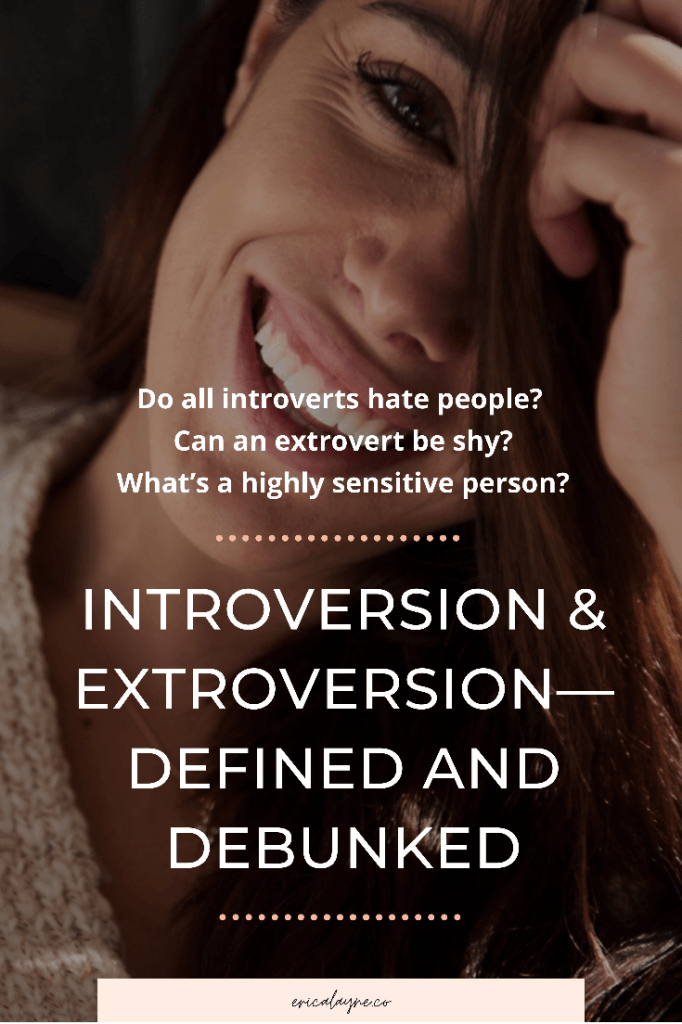
Introvert or extrovert, our differences aren’t bad; they’re just, well, different! And theses differences can bring our world a lot of good—especially when we take the time to understand them.
Only good things can come from understanding ourselves and each other better. ❤️
So today, let’s dive in to some common terms and debunk some common myths!
Introversion and Extroversion, Defined
If you like to be strict with definitions, introversion is the tendency to be predominantly concerned with and interested in your own mental life. Introverts are energized by their thoughts and ideas.
Extroverts, on the other hand, are the opposite. They tend to be predominantly interested in what is outside the self.
To me, the most recognizable difference is where we draw our energy from. Introverts feel drained after time spent with others and need time alone—solitude—in order to recharge. In contrast, extroverts get energy from being *with* others.
On a deeper level, this is because of our different tolerances for stimulation.
In her TED talk, The Power of Introverts, Susan Cain said: “Extroverts crave large amounts of stimulation, whereas introverts feel at their most alive, their most switched-on, and their most capable when they’re in quieter, more low-key environments. Not all the time—these things aren’t absolute—but a lot of the time. The key then to maximizing our talents is for us all to put ourselves in the zone of stimulation that is right for us.”
To get scientific, introverts are more sensitive to dopamine—one of the feel-good chemicals in the brain—than extroverts are. Introverts don’t need large amounts dopamine to feel stimulated, where extroverts need a lot of it, causing them to seek it out in new experiences and new people.
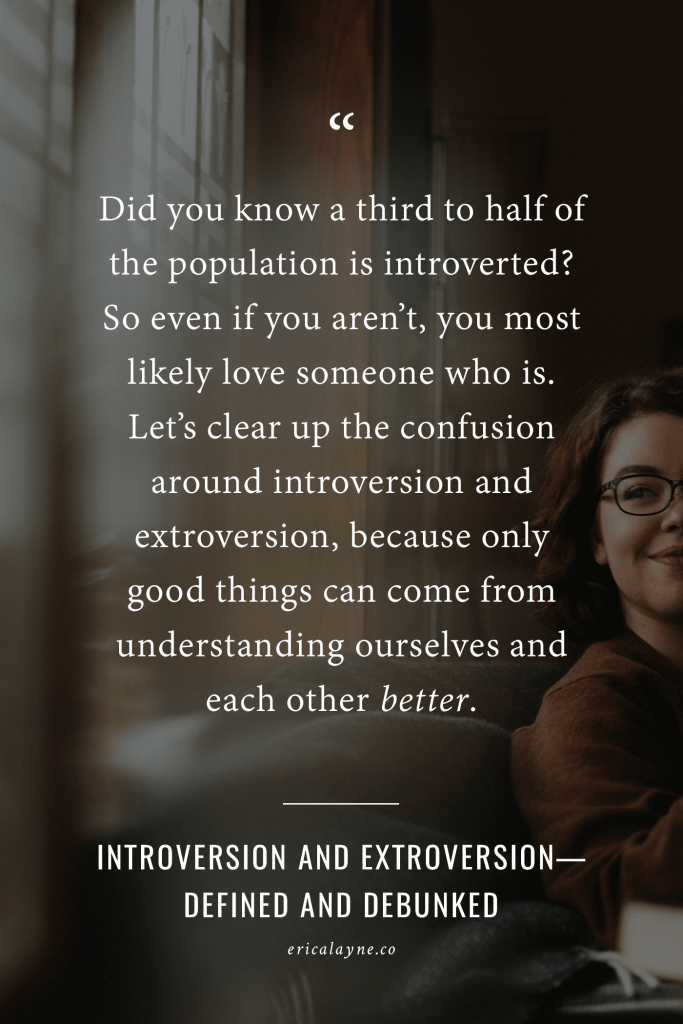
Ambiverts
Introversion/extroversion is a sliding scale—you don’t have to be squarely one or the other. (Carl Yung famously said that anyone who was a pure introvert or a pure extrovert would be in a lunatic asylum.) Many people fall in the middle and call themselves ambiverts. 👍
Shyness
Shyness is the feeling of discomfort around others, especially new people or new situations—and it’s not tied to either introversion or extroversion!
It’s absolutely possible to be an outgoing introvert (I think of myself as one) OR to be a shy extrovert. (Rare, maybe, but possible! What that might look like is someone who is initially nervous around new people or in new situations but ultimately warms up and feels energized from those interactions.)
Social Anxiety
Where introverts find socialization emotionally draining after a period of time, people with social anxiety connect *fear* with social situations. They sense a high degree of judgment from others and are often extremely self-conscious as a result.
I once heard it described like this: “Introversion IS your way. Social anxiety GETS in your way.”
It’s important to differentiate between introversion and social anxiety, because social anxiety can really diminish your quality of life, and depending on how severe it is, it can be treated through medication and therapy. (This is good news!)
I host a Facebook group for introverted moms. The group has more than 7,000 members in it and is very active, so I’ve been able to observe thousands of posts and comments, and I often see introversion and social anxiety tangled up into one. There may likely be some correlation between the two, but they’re definitely not one and the same.

The last personality trait I want to tackle is…
Highly Sensitive People (HSPs)
This term was popularized by Dr. Elaine Aron in her book The Highly Sensitive Person. These are people (including kids) who are easily overwhelmed by noise, smells, texture, busyness, and even their own thoughts. They are often sensitive to hunger and other physical discomforts (like tags in their clothes or the sensation of being wet). They tend to freeze when being observed; they can often sense when others are uncomfortable; and many of us avoid violent media. (Because well, we’re sensitive!)
Now for few nuances I wanted to touch on, in hopes of deepening your understanding of introversion, in particular.
Everyone Benefits from Solitude
While extroverts might not be as inclined as introverts are to seek out solitude, I believe everyone benefits from it. Susan Cain highlights how if you look at most of the world’s major religions, you’ll find seekers—from Moses to Jesus, Buddha to Muhammad—who went off into the wilderness and came back with revelations. We all need some silence and solitude to serve as the incubator for our thoughts and ideas. As Susan Cain says, “No wilderness, no revelations.”
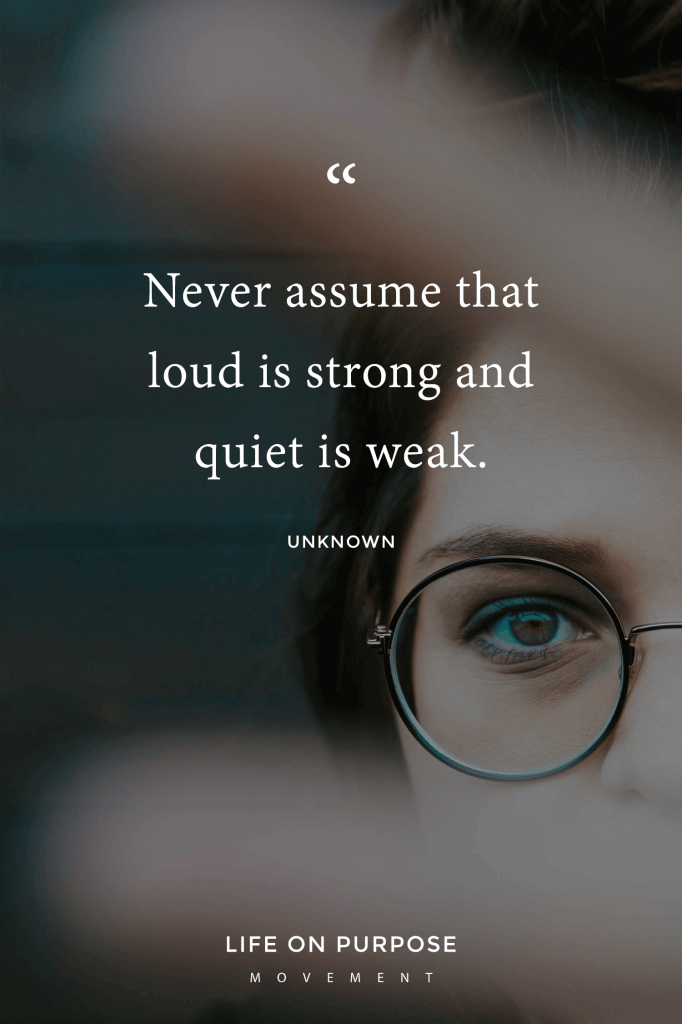
Introverts May Be More Susceptible to Depression than Extroverts
Another nuance is the potential relationship between introversion and depression. It’s not a causative relationship—being an introvert doesn’t CAUSE depression. Not at all. But there may be a correlation, possibly because (1) we introverts spend so much time in our heads, and (2) we can be a bit reluctant to reach out and make social connections. So if you’re an introvert or care about someone who is, keep an eye out for signs of depression. Check in with yourself often. ❤️
When an Introvert Wants to Be Alone, It’s Not a Rejection of You
If you love someone who is introverted, don’t be offended that they don’t want to hang out all the time. They don’t love you any less; they just need time alone in order to be their BEST self. Their social battery gets depleted a lot easier than yours might, and that’s okay.
My Journey to Seeing Myself as an Introvert—and Meeting My Own Needs as an Introverted Mom
Now that we’ve defined introversion, extroversion, ambiverts, shyness, social anxiety, and highly sensitive people, let’s circle back to that ongoing conflict between my husband and I over whether we’d spend our evenings together or apart.
I’d never identified myself as an introvert before, because I’d always liked people and considered myself pretty outgoing. I didn’t think that qualified me as an introvert.
Until I became a mom, alone time had always come to me pretty easily. I remember reading or writing for hours at a time as a kid and a teen. I remember peaceful walks home from my college campus, where I could be alone with my thoughts in the quiet of falling snow.
It was when I became a mom to toddlers—when they started chatting all the time, climbing the furniture all the time, climbing ME all the time(!)—that I started feeling starved for time and space of my own.
Thankfully, that’s when I made the connection that I was an introvert.
The burnout I was feeling at the end of every day wasn’t a character flaw or a defect; it was just my nature.
So after months—maybe even years—of my husband and me duking it out over how we’d spend our evenings, we finally came to a simple but incredibly helpful realization: As an introverted mom, I needed about an hour to myself every night right after I got the kids down.
So every night, I’d take that hour. I’d check out with a show or a book so that I could put my active introverted brain on silence for a bit. Some nights I’d take a bath or write in my journal.
My husband learned to accept it—to give me that space so that I could then come back to him feeling more present and ready to engage.
So remember, if you love an introvert, it’s not a rejection of you if they don’t want to spend all of their waking moments with you. It’s just who they are.
Are YOU an Introvert?
More specifically, an introverted mom? Motherhood can be uniquely challenging for introverts and highly sensitive people, but with these seven tools, it can be SO much more peaceful than what you’re experiencing now. Jump into my 7-day challenge, Talked Out, Touched Out: Learn to Thrive as an Introverted Mom. You will be so glad you did.
Show produced by Callie Wright
I hope this discussion helped you understand yourself and your loved ones just a little bit better than you did before!
xo!

PS. I shared my introvert origin story 😉 — I want to hear yours! If you’re an introvert, when/how did you first realize it?

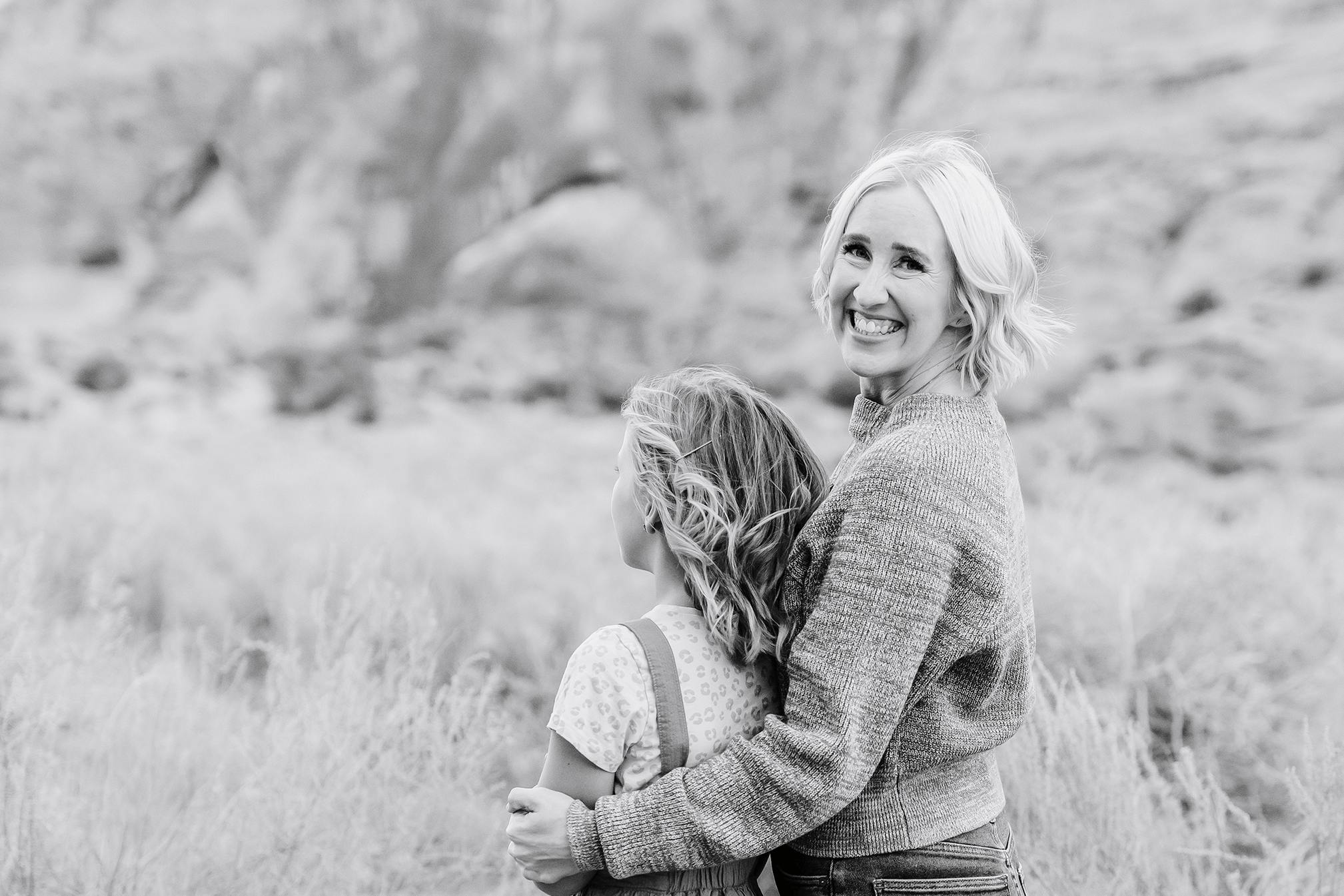
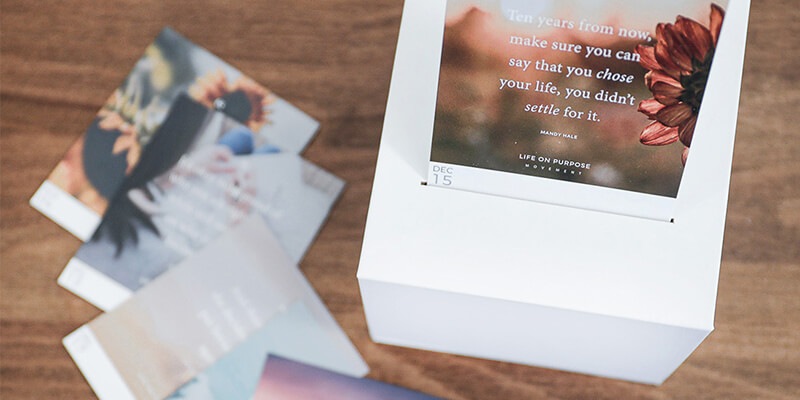
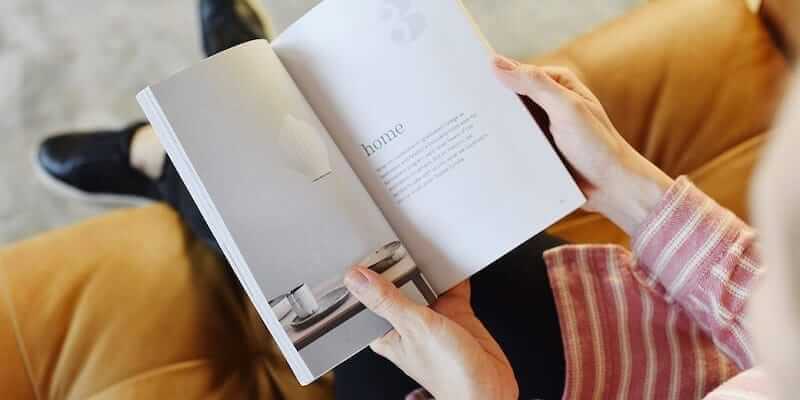
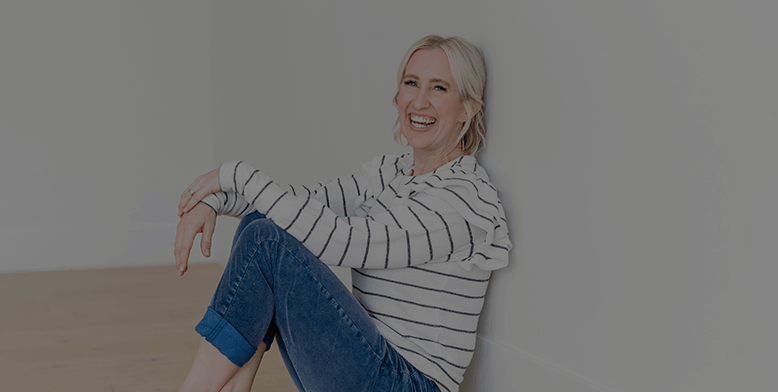
Hi, Erica, I just read your introvert story, and I wanted to chime in that, regardless of personality type, staying home with toddlers all day is generally more draining than an office job! So, it’s completely understandable that you were more tired and needed more alone time at the end of the day than your husband, who might have felt similarly drained by day’s end had he been the only adult at home with two little ones.